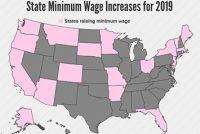Just How Transparent Should Pay Transparency Be?
A recent study by Mercer titled “2019 Global Talent Trends Study” found a large gap between employees’ and HR’s understanding of how many employees would leave for better pay. The study raises important questions about pay transparency.









